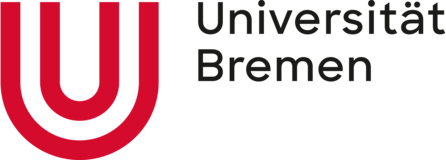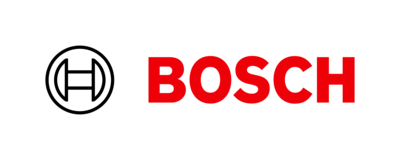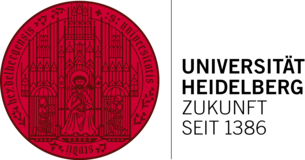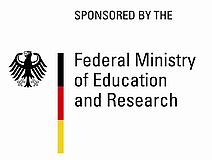2023 - KoMSO Academy
TorchPhysics: Deep Learning for partial differential equations, November 7 & 8, 2023
The Center for Industrial Mathematics (ZeTeM) and the Committee for Mathematical Modeling, Simulation, and Optimization (KoMSO) are happy to host a KoMSO Academy dedicated to
‘TorchPhysics: Deep Learning for partial differential equations’
The KoMSO Academy aims at offering mathematicians a platform for an exchange on novel mathematical concepts relevant for industrial applications.
Deep Learning concepts for PDEs are booming and everybody working in this area is confronted with the challenge to decide on a suitable architecture and concepts for tackling the respective problem. Hence, our present workshop aims providing an overview on recent developments for deep learning concept as well as dedicating substantial hours for training sessions with hands-on examples.
The workshop is based on collaboration with Bosch and our joint TorchPhysics-project, see github.com/boschresearch/torchphysics
We very much prefer to see you in Heidelberg in person. However, we will provide online access for a limited number of participants not able to attend in person.
KoMSO Academy
KoMSO Academy aims at addressing novel business and technology trends at an early stage of development. They bring together leading experts from industry and academia for a discussion of the present state of the art, potentials and risks as well as future developments. They are open to short contributions by the participants aiming for feedback for their specific problems.
The present workshop targets deep learning concepts for solving partial differential equations and related parametric studies. TorchPhysics, which has been developed jointly by Bosch and the University of Bremen, aims at providing an ‘as simple as possible’ platform for testing AI concepts for solving PDEs.
We include an introduction in using TorchPhysics as well as hands on exercises using this toolbox.
Furthermore we highlight recent advances in modeling injection molding processes in industrial applications via deep learning based surrogate models.
Keynote Speakers

Uwe Iben is a Chief Expert for Applied Mathematics at Bosch Research.
His main research aeras includes AI methods for solving of ODEs and PDEs as surrogate models. He has joined the Robert Bosch GmbH in 1999 as a simulation engineer. He worked 15 years on the field of multi-phase flow and cavitation as a project leader and Chief expert. From 2016 till 2020 he became the head of Research and Technology Offices in Saint Petersburg/Russia.
Dr. Iben studied mathematics at Moscow State University and Technical University of Dresden. After his PhD in the field of numerical mathematics, he worked as a PostDoc at Otto-von-Guericke University, Magdeburg. In 2003, he received his doctorate in the field of modeling of cavitating flow phenomena from Otto-von-Guericke University Magdeburg, Germany. He became an honorary professor at the University of Stuttgart in 2017 where he gives lectures on multi-phase flow phenomena.

Peter Maass (Professor for Applied Mathematics at the Center for Industrial Mathematics at University of Bremen, ZeTeM). His main research areas include inverse problems, parameter identification, and since several years deep learning.
Prof. Maass studied mathematics in Karlsruhe, Cambridge and Heidelberg and obtained his doctorate in 1988 from TU Berlin as well as his habilitation in mathematics from Saarland University in 1993. Peter Maass was a full professor at Potsdam University from 1993 -1999 before becoming director of ZeTeM.
He spent several longterm research visits as guest professor or researcher at leading international universities including Paris, Berkeley, Boston and Cambridge.

Manuel Wenzel is a PhD-Student at Bosch Research. His research area includes modeling of production processes for development - as well as monitoring - and prediction-tasks enhanced by machine learning techniques.
Mr. Wenzel studied mechanical engineering in Karlsruhe and obtained his masters in 2021 after which he joined Bosch. He mainly works on surrogate modeling of the injection molding process with focus on combining simulation and process data as well as integrating domain knowledge into data-driven methods.
TorchPhysics Team University of Bremen

Nick Heilenkötter

Tom Freudenberg

Janek Gödeke
The library "TorchPhysics" was designed by Tom Freudenberg and Nick Heilenkötter (University of Bremen) as a part of their modeling seminar in a cooperation of the Centre for Industrial Mathematics and the Robert Bosch GmbH. It is currently maintained and developed by Janek Gödeke, Tom Freudenberg and Nick Heilenkötter together with a team of researchers at Bosch which is led by Prof. Dr. Uwe Iben. Its development is motivated by various applications from different fields at Bosch Research as well as in the working group 'Industrial Mathematics'.
Place and Agenda
The KoMSO Academy will take place at the Heidelberger Akademie der Wissenschaften, Karlstraße 4, 69117 Heidelberg
Online participation is possible for a limited number of participants and the dial-in data will be provided by E-mail.


Organizers & Registration
Organizers:
Prof. Dr. Uwe Iben, Robert Bosch GmbH
Prof. Dr. Dr. h.c. Peter Maaß, Universiy of Bremen
Dr. Hanna Schilar, University of Wuppertal, KoMSO Coordinator
Registration:
Date: November 7 & 8, 2023
Place: Heidelberg or virtual
Registration fee for industry: 600 € (online 350 €)
Registration fee for academia: 250 € (online 150 €)
(Registration fee on site incl. conference dinner, 07.11.)
For registration please send an e-mail to the local organization comittee.







